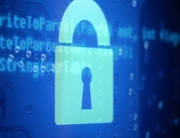Hundreds of thousands of computers in the UK could be at risk of being infected by what’s now being called the “Peter Pan Virus”.
It’s essentially a highly sophisticated phising email scam, involving a very convincing “confirmation” email purporting to be from a real ticketing company, BH Live. The attack, coming from an unidentified group of hackers, is reported to have began yesterday morning.
It’s another episode in a series of computer hacks that have been happening recently; though as it turned out to be hot air, the internet was awash with articles about the recent ‘heartbleed bug’ which equally threatened hundreds of thousands of computers too.
Upon opening the email, users will be told they have successfully bought nine tickets for £145 to see Peter Pan at the Bournemouth Pavilion Theatre this Christmas – a genuined production. Those who were unlucky enough to clicked on the attached “e-tickets”, which appear to be PDF files, have actually downloaded a torrent of malware viruses to their computers.
Experts are currently warning that the scam is directed not only at individuals but small to medium size businesses as well. Derek Knight, writing for My Online Security’s Blog, said that the malware involved will almost certainly “have a password stealing component, with the aim of stealing your email or log in credentials”.
“Many of them are also designed to specifically steal your Facebook and other social network log in details,” he added.
In a statement issued on the BH Live website, the company said it had started receiving a “high volume” of calls regarding the emails from 7.30am on Monday.
BH Live also confirmed that the emails are not genuine, and that their own internal systems “have not been breached”.
BH Live’s warning:
“The public is advised to delete these emails, to not open any attachments or links; ensure they are running the most up-to-date security products and that the operating system has been updated to the latest version.
“It is recommended that anyone receiving these emails update their passwords over the coming days.”









